Introduction to CT-262
CT-262 is a prodrug delivery system that selectively releases a highly cytotoxic moiety intracellularly in cancer cells, sparing healthy cells.

A compound with these five characteristics would be a major advance in the treatment of cancer.
- Active moiety is an analogue of duocarmycin with highly potent antitumor activity
- Novel design – nothing like it examined previously – creates potential for major advance in the treatment of cancer
- Prodrug is inactive and highly stable in plasma, greatly limiting the potential for off-target toxicity
- Selective intracellular release in cancer cells of toxic duocarmycin moiety – free drug – from prodrug driven by protein in cytosol of cancer cells that does not appear to be meaningfully present in healthy cells
- Targeting of cancer cells not dependent upon presence of cell surface antigen – all cancer cells targeted
- CT-262 highly efficacious in in vivo xenograft and transgenic cancer models, as well as in organoid models highly predictive of efficacy in humans
- Low toxicity, low myelosuppression that typically limits chemotherapy
- Not subject to traditional mechanisms of resistance (unable to raise resistance to date)
Combination of results from preclinical efficacy studies and safety evaluations demonstrate CT-262 is highly efficacious and broadly active, and suggests the compound has a wide therapeutic window.
CT-262 is a Prodrug That is Selectively Activated in Cancer Cells and Targets DNA to Induce Programmed Cell Death
CT-262 is an analogue of duocarmycin, a natural product with potent anti-tumor activity.
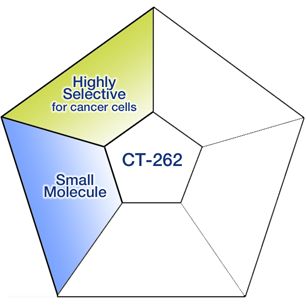
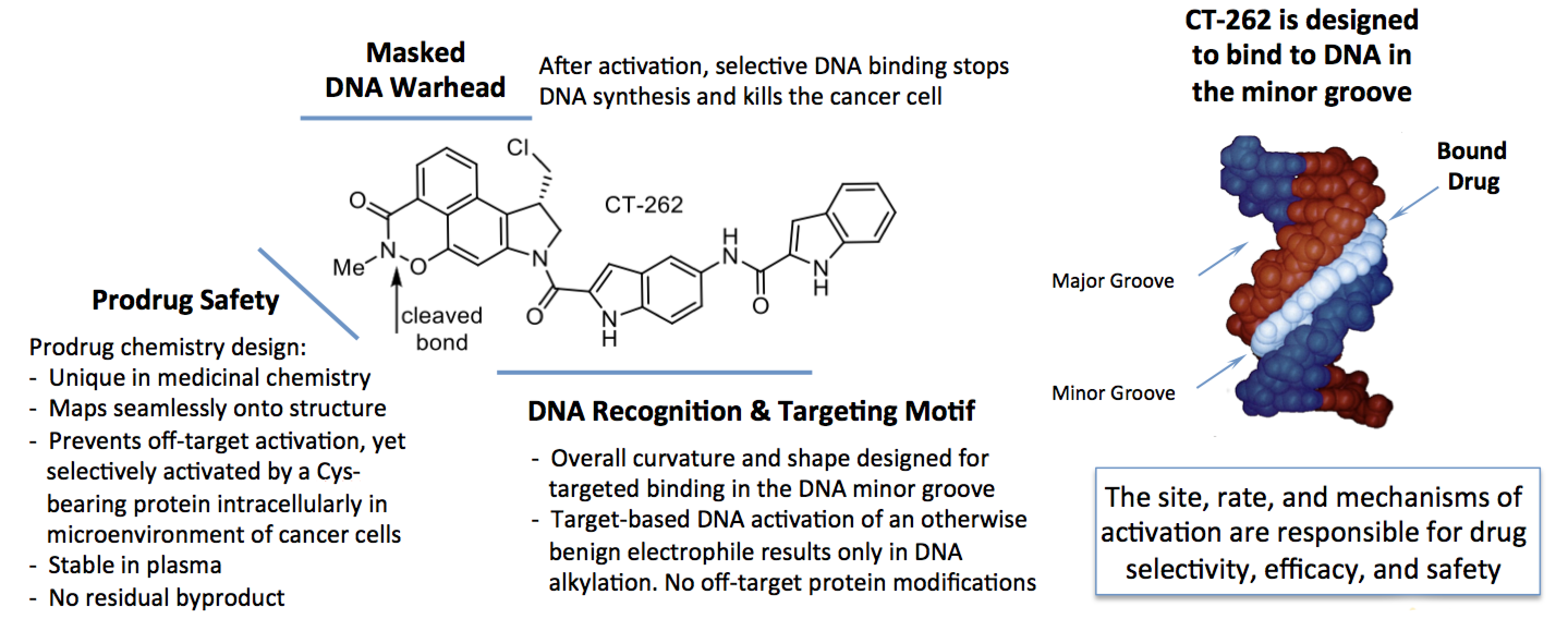
CT-262 Undergoes a Two-Step Process for Selective Activation Inside Cancer Cells Delivering Primed Drugs Selectively to Cancer Cells

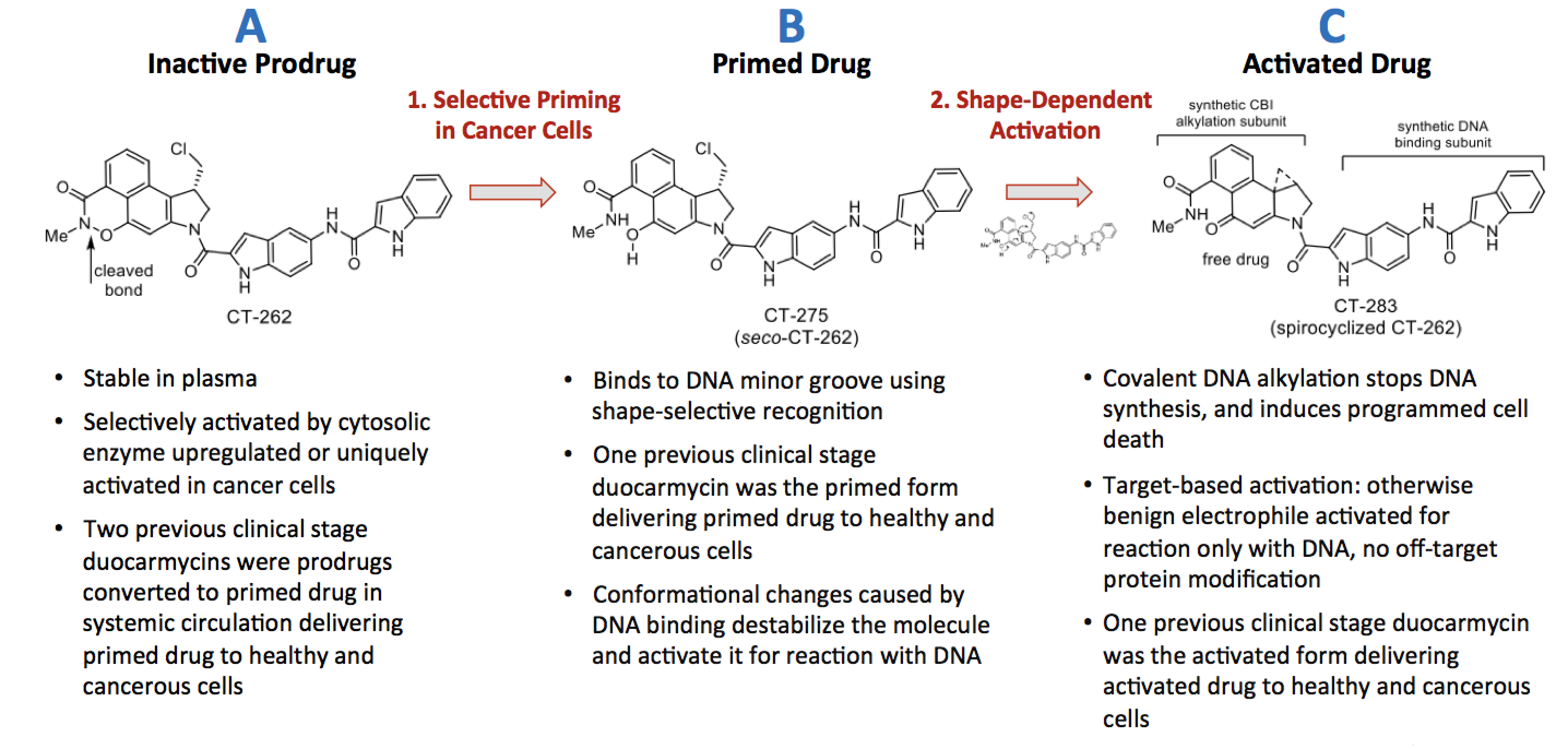
Contrast With Traditional Chemotherapy – Potential for Wide Therapeutic Window
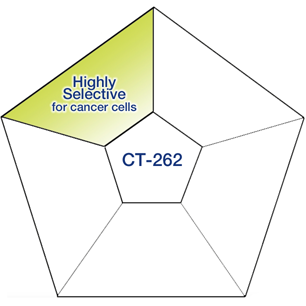
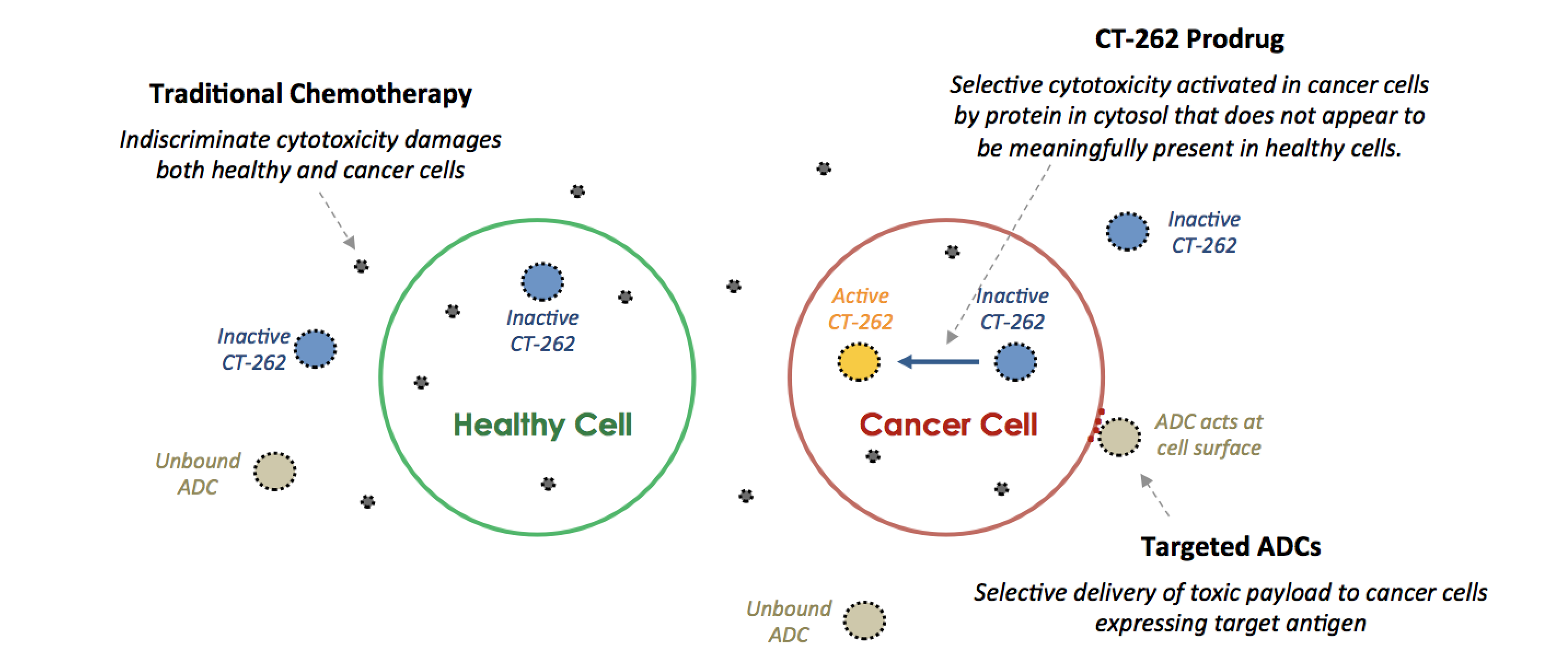
Selective Activation Shown in Mice with Breast Cancer: Inactive Prodrug is Converted to Primed Drug in Breast Cancer Tissue but Not in Normal Breast Tissue

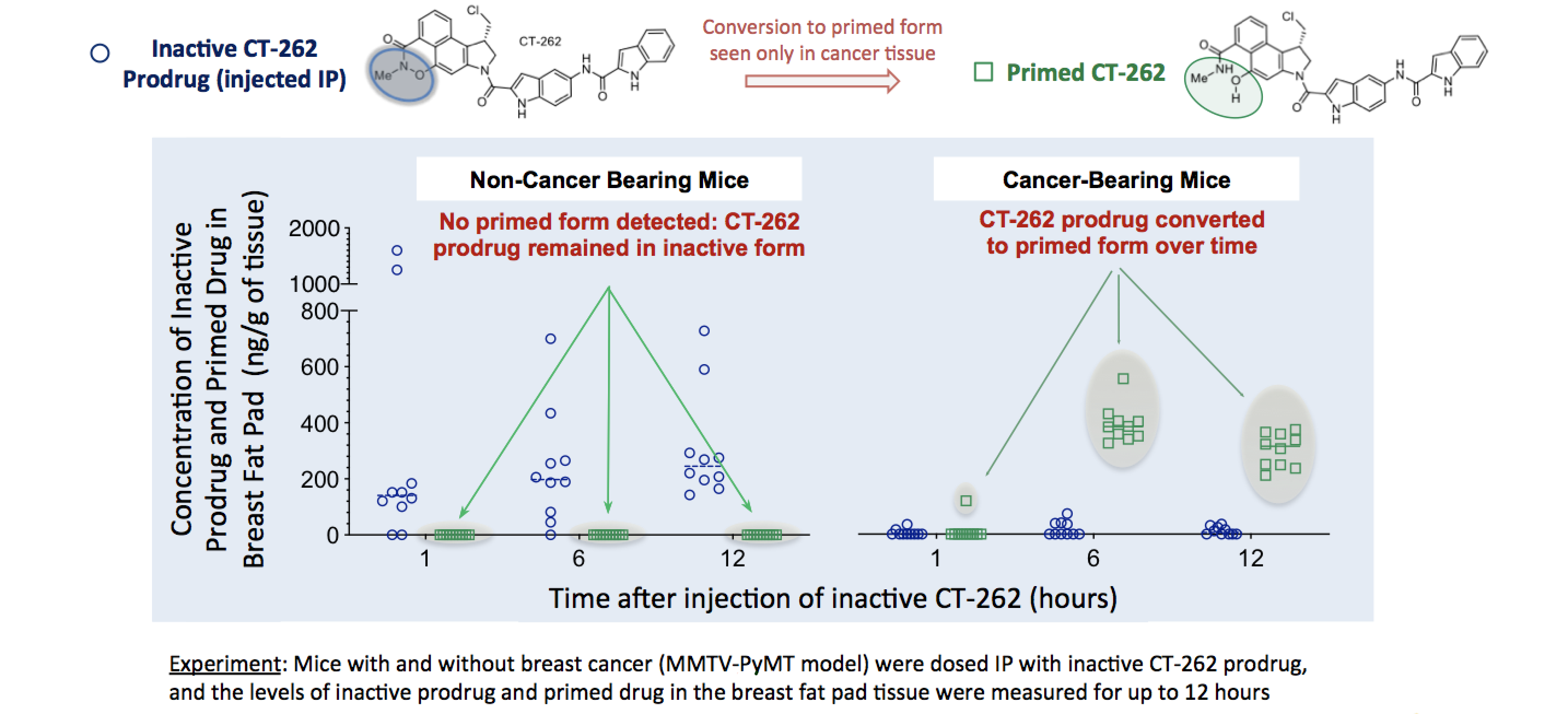
Highly Potent & Broadly Active in a Range of Human Cancers
Data demonstrate CT-262 is readily converted from inactive form to cytotoxic form in human cancers.
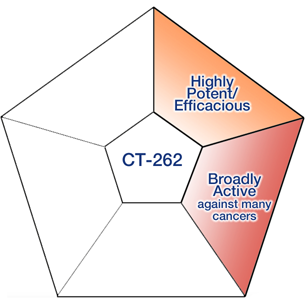
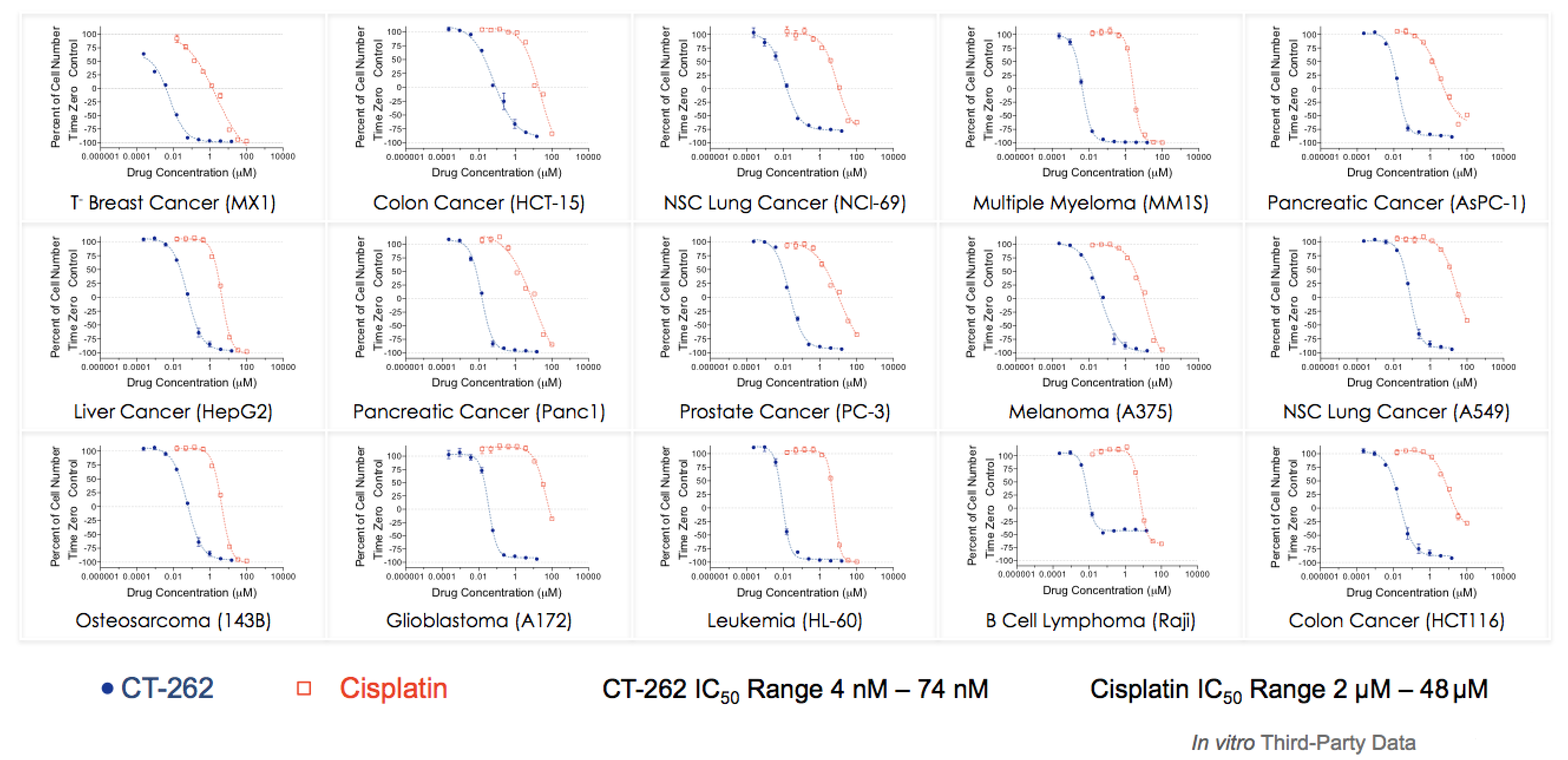
Shows Pronounced Activity Against Highly Resistant Human NSCLC in Murine Xenograft Model
CT-262 inhibits tumor growth in a dose-dependent manner and continues inhibition after the last dose.
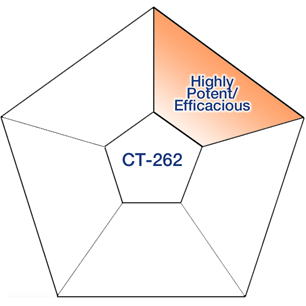
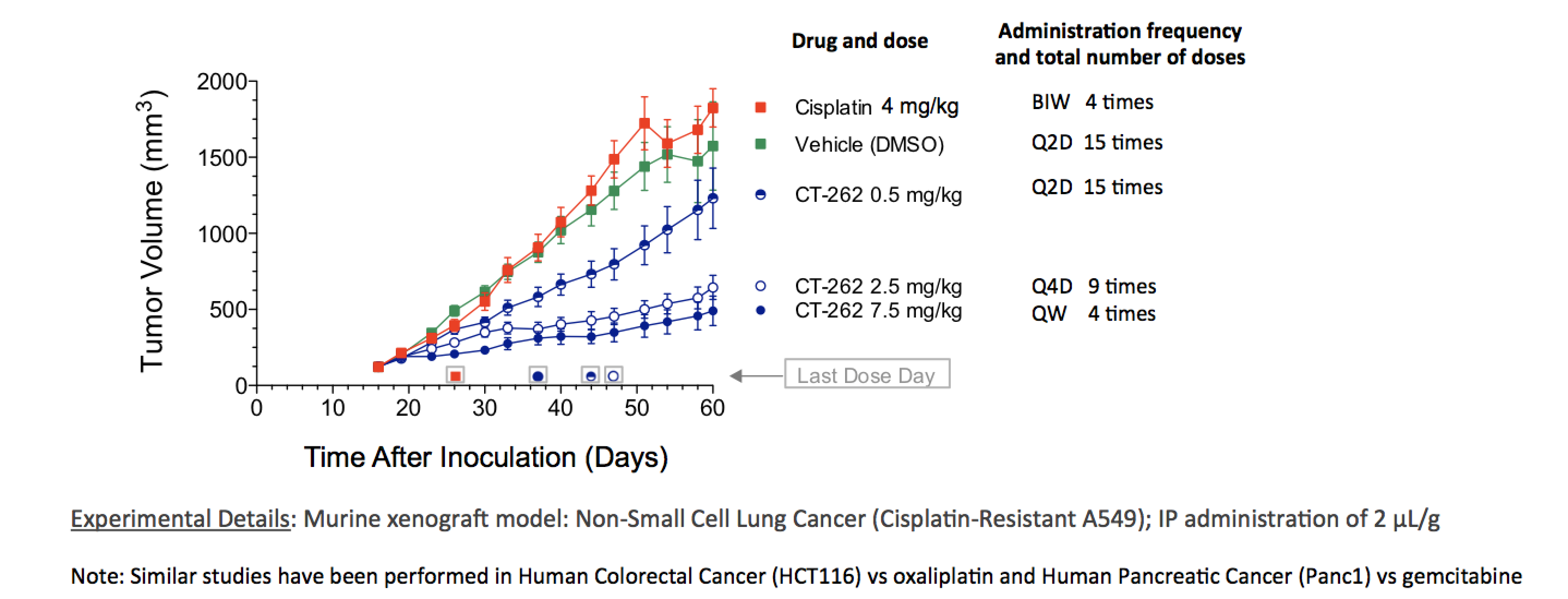
Highly Potent, Efficacious and Broadly Active in Organoid Models of Cancer that are Predictive of Human Efficacy
Data demonstrate CT-262 is readily converted from inactive form to cytotoxic form in human cancers.

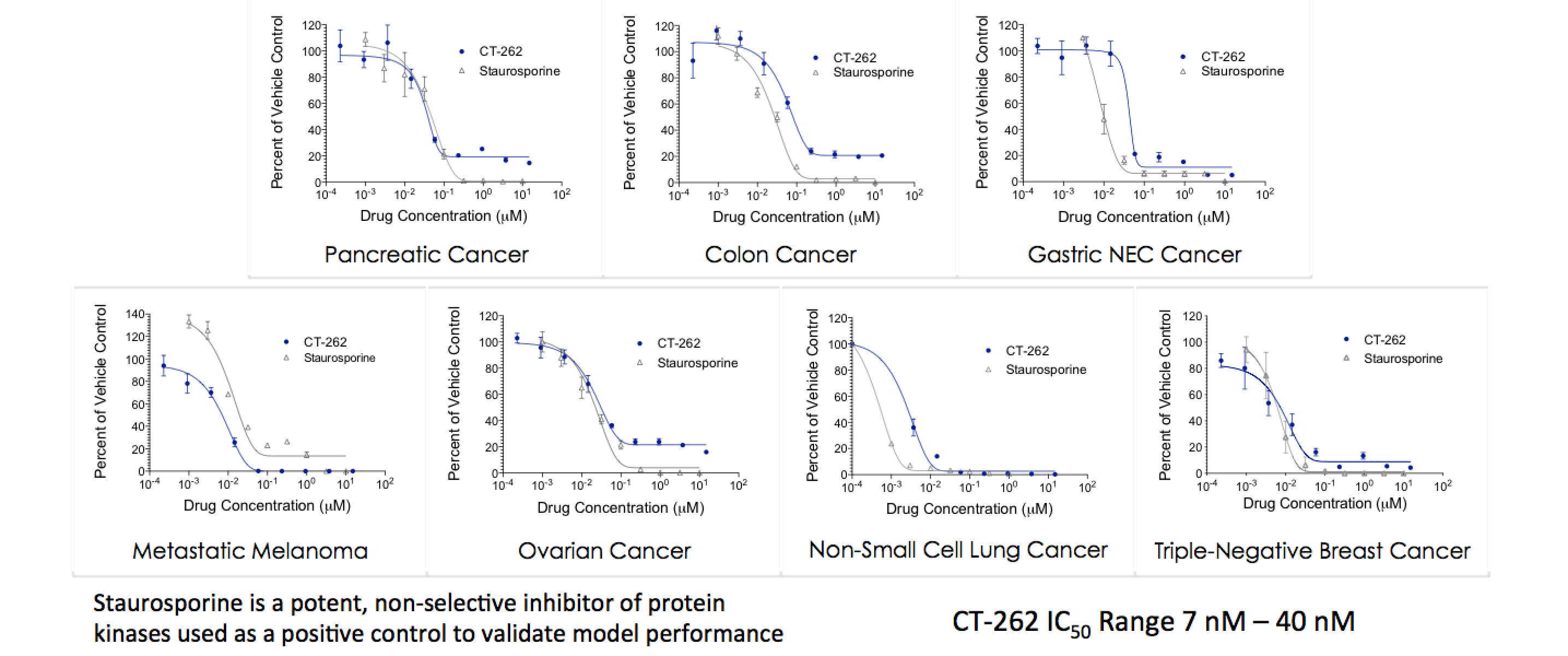
Should Be Much Less Susceptible to Cancer Cell Resistance Mechanisms Than Leading Therapies
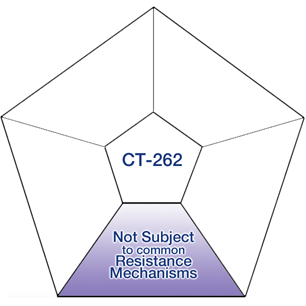
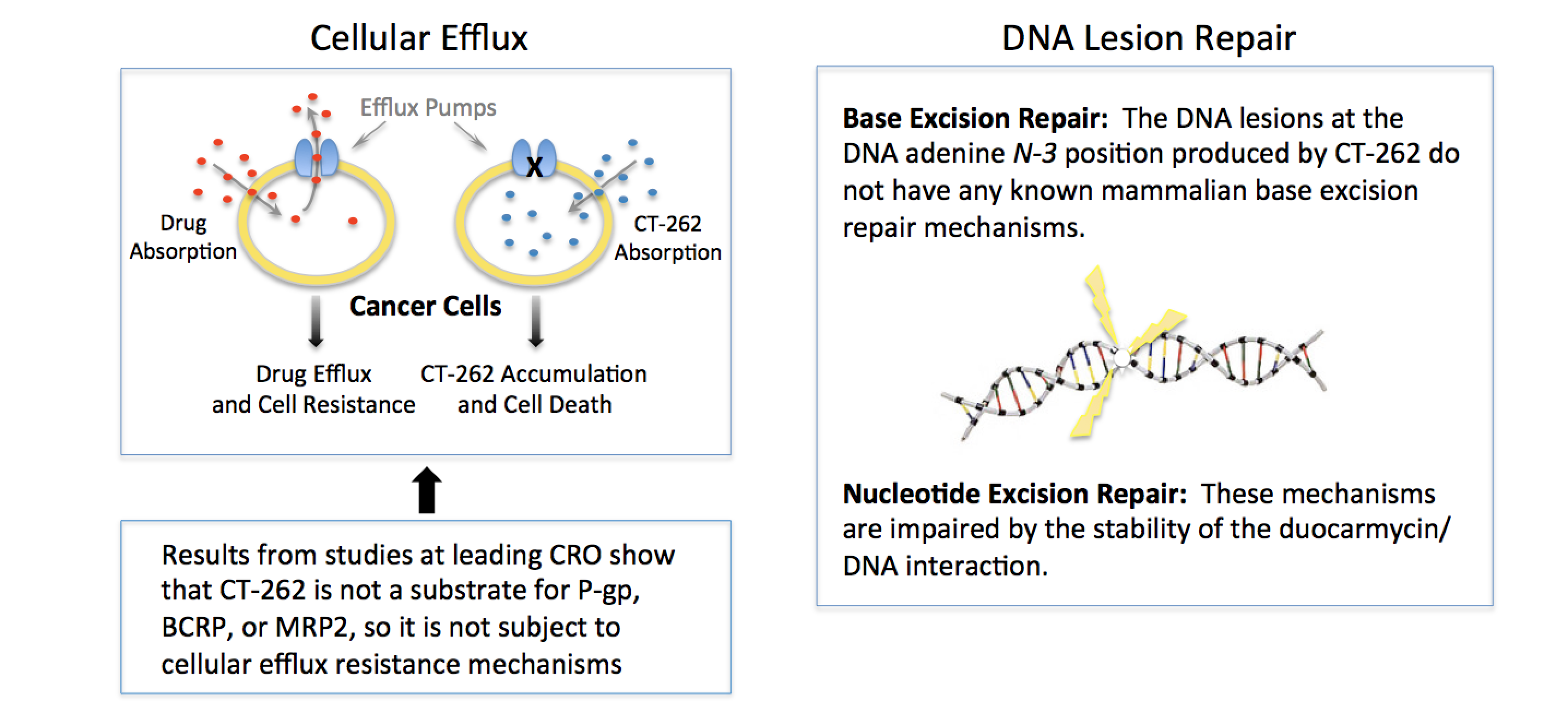
The promise of CT-262

